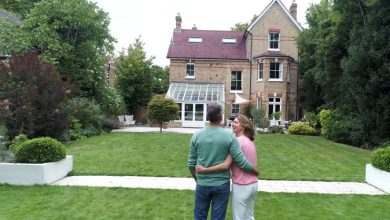Getting a UK Study Visa for Immigrants with Accommodation Options – Visa Sponsorship in UK
Studying in one of the world’s premier academic destinations provides exceptional opportunities for both personal and intellectual growth. The UK is widely recognized for its prestigious universities, rich cultural diversity, and dynamic academic atmosphere, making it a top choice for international students.
Obtaining a UK study visa is a critical step for students wishing to study in the UK. This guide will take you through the process of acquiring a UK study visa and offer insights on finding suitable accommodation for a smooth transition.
Different Types of UK Study Visas
The UK provides various types of study visas based on the duration and nature of the course you intend to pursue:
- Student Visa (Tier 4):
For students aged 16 and above, this visa is meant for those enrolled in degree-level courses or below. It is valid throughout the duration of the course. - Short-Term Study Visa:
This visa is for short-term courses, typically lasting six months or less, and is mainly used for language courses or exchange programs. - Child Student Visa:
For students between the ages of 4 and 17, this visa allows younger students to attend school in the UK.
Understanding the appropriate visa for your specific situation is vital before you begin the application process.
Eligibility Requirements for a UK Study Visa
To qualify for a UK study visa, you must meet the following criteria:
- Acceptance from a Recognized Educational Institution:
You must obtain a Confirmation of Acceptance for Studies (CAS) from a UK institution listed as a licensed sponsor. - Proof of English Language Proficiency:
You will need to demonstrate your ability to communicate in English by submitting results from an accepted language test, such as IELTS, TOEFL, or others. - Financial Evidence:
You must show that you have sufficient funds to cover both tuition fees and living expenses. The amount required may differ depending on the location of your institution (e.g., higher amounts for students studying in London). - Valid Passport and Supporting Documents:
A valid passport with available pages for the visa, along with additional documents like tuberculosis test results (if applicable), academic records, and qualifications. - Health Insurance:
You will need to pay the Immigration Health Surcharge (IHS) to access the UK’s National Health Service (NHS).
An In-Depth Guide to Applying for a UK Study Visa
- Choose Your Course and Institution:
Select a course and ensure that the institution is a licensed sponsor by checking the UK Home Office’s list. - Obtain Your CAS:
Once accepted into your chosen program, your institution will send you a CAS, which is necessary for your visa application. - Gather Required Documents:
Prepare the following documents:- Valid passport
- CAS reference number
- Proof of financial support
- English language test results
- Academic transcripts and certificates
- Submit Your Application:
Complete the online application via the UK Visas and Immigration (UKVI) website and pay the application fee (£350 for a student visa). - Book a Biometric Appointment:
Schedule an appointment at a visa center to submit your fingerprints and a photograph. - Attend a Visa Interview:
Be ready to discuss your study plans, finances, and accommodation during the interview. - Wait for a Decision:
The processing time usually takes about three weeks, but it may vary depending on where you are applying from.
Accommodation Options for International Students
After securing your study visa, the next task is finding accommodation. Below are some options available to international students:
- University Accommodation:
Many universities offer on-campus housing or affiliated residences, ideal for first-year students. These accommodations often include utilities like internet and electricity in the rent. - Private Rentals:
Renting a flat or house provides more independence, though the cost varies greatly depending on location, with London being the most expensive. You will need a deposit and a signed tenancy agreement. - Homestays:
Staying with a host family provides a distinctive cultural experience. Meals and utilities are typically included in the cost. - Student Housing Platforms:
Websites like Unilodgers, Student.com, and SpareRoom specialize in listings for international students. You can filter the options based on budget, location, and amenities. - Shared Accommodation:
Sharing a house or apartment with fellow students can help reduce costs and offer a social living environment.
Tips for a Smooth Transition
- Start Early:
Begin your visa application and accommodation search well in advance to avoid unnecessary stress later on. - Create a Budget:
Plan for all expenses, including tuition, rent, food, and miscellaneous costs. Look into scholarships and part-time work options to help manage your finances. - Prepare for Cultural Differences:
Familiarize yourself with UK customs and etiquette to ease your cultural adjustment. Participate in social groups and events to meet new people. - Stay Organized:
Keep all your important documents in one place and maintain a checklist to stay on top of deadlines. - Health and Wellbeing:
Once you arrive, register with a local doctor (GP) and make use of the student support services offered by your institution.
FAQs
- Can I work on a student visa?
Yes, students on a valid study visa can work part-time (up to 20 hours per week during term time and full-time during holidays). - What happens if my visa application is rejected?
You can reapply or appeal the decision if you believe there was an error in the process. It’s helpful to consult an immigration advisor for assistance. - How long can I stay in the UK after completing my course?
Under the Graduate Route, students can stay in the UK for an additional two years to work or search for work. - Do I need to provide proof of accommodation with my visa application?
While not mandatory, providing proof of accommodation arrangements is highly recommended.
Securing a UK study visa and finding accommodation may seem overwhelming at first, but with careful planning, the process becomes more manageable. The UK’s excellent academic institutions and multicultural environment provide a unique opportunity for international students to thrive. By following this guide, you can confidently embark on your academic journey in the UK.



